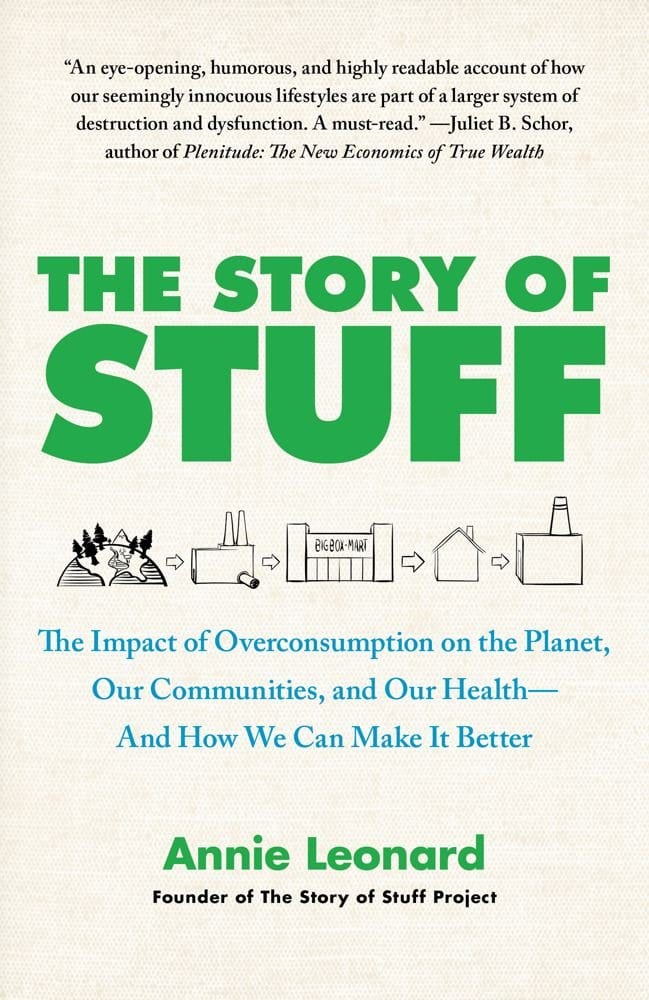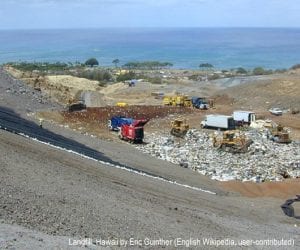While textbooks, government databases, and academic essays can provide students with quality sources, popular non-fiction is another unique opportunity for learning. Books can widen students’ perspectives, offer personal narratives, and contextualize big issues and eras in history. That’s why we’ve created the following book list for the 2020-2021 World of 7 Billion student video contest.
This year, the contest topics are: Promoting Environmental Justice, Strengthening Global Health, and Re-Imagining Industrial Systems. In addition to reading the provided background readings, students might consider reading some contemporary materials as part of their research. The following list of books are sure to deepen their understanding of key themes and issues.
Books listed below with an * are especially well-suited for the middle-grades.
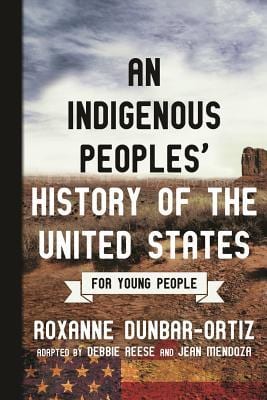
Books on Promoting Environmental Justice
*An Indigenous Peoples’ History of the United States for Young People by Jean Mendoza (Adapter), Debbie Reese (Adapter), and Roxanne Dunbar-Ortiz (Author)
Adapted from the highly-acclaimed book “An Indigenous Peoples’ History of the United States,” this award-winning, middle-grade version provides a crucial narrative and foundation of Indigenous Peoples’ history, struggles, and resistance in the U.S. With added discussion questions, original maps, and archival images, this book encourages students to think critically about U.S. history. The last chapter explores the Dakota Access pipeline (DAPL) project and the ongoing #NODAPL movement.
*Poisoned Water by Candy J. Cooper
This book for young adults focuses on the water crisis in Flint, Michigan. Through interviews with residents and rigorous research, Candy Cooper shows how environmental racism not only led to the toxic water conditions, but how residents faced dire economic consequences due to discriminatory policies. Plagued with high water bills, those who couldn’t pay saw their property taxes increase, and threats of home loss ensued. Through personal stories, this book explores how environmental injustice has many layers.
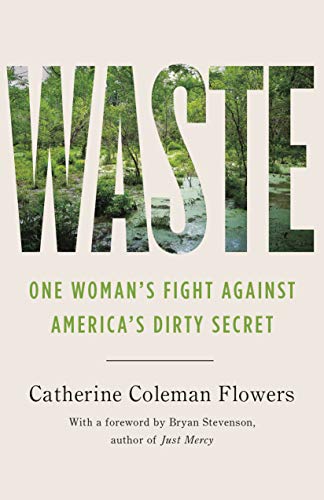 Waste: One Woman’s Fight Against America’s Dirty Secret by Catherine Coleman Flowers
Waste: One Woman’s Fight Against America’s Dirty Secret by Catherine Coleman Flowers
Coming soon: Nov 17, 2020
In this new book, Catherine Coleman Flowers spotlights a hidden but widespread injustice throughout many American communities. An issue that has serious implications for health: contaminated wastewater. Focusing on rural communities, from Appalachian mountain towns to Native American reservations to her home state of Alabama, Coleman Flowers highlights how systemic race and class prejudice intersect to limit access to basic sanitation, and how climate change causes raw sewage to flood many communities. As an organizer for waste treatment, she recounts her personal journey to becoming an activist on this overlooked issue in the U.S.
Our History Is the Future: Standing Rock Versus the Dakota Access Pipeline, and the Long Tradition of Indigenous Resistance by Nick Estes
In this urgent book, Nick Estes examines the long history of Indigenous Peoples’ resistance while focusing on what “land” means in an indigenous context. The book centers the Standing Rock Sioux Tribe and other indigenous nations’ resistance to the Dakota Access pipeline (DAPL), the largest indigenous protest of the 21st century. The DAPL pipeline violates Article II of the Fort Laramie Treaty, and Nick Estes chronicles how the DAPL pipeline is one of many violations of indigenous sovereignty in the pursuit of natural resources and wealth. This important book is a tribute to the history and activist groundwork that lead to the #NODAPL movement, and the resilience of Indigenous Peoples.
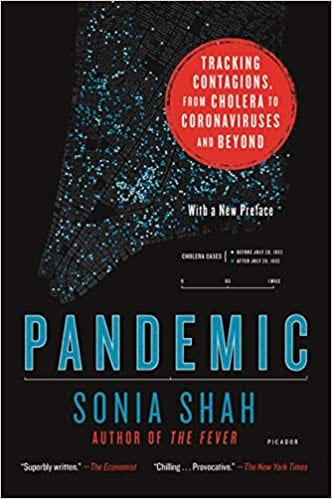
Books on Strengthening Global Health
Pandemic: Tracking Contagions from Cholera to the Coronavirus by Sonia Shah
In the last five decades, over 300 infectious diseases have emerged (or re-emerged), and even before the current COVID pandemic, epidemiologists had warned that one would result in a deadly global pandemic. Through original reporting and personal prose, science journalist Sonia Shah takes readers on a whirlwind tour of the history of infectious disease epidemics around the world and the efforts by epidemiologists and scientists to eradicate them.
Choked: Life and Breath in the Age of Air Pollution by Beth Gardiner
After moving to London, American journalist Beth Gardiner became acutely concerned with the city’s air pollution and its potential impacts on her newborn daughter. Through a series of personal stories and case studies from around the world, from coal-heating homes in Krakow, to government policies in Delhi, Gardiner shows the vast scope of this global problem. Air pollution causes over 7 million pre-mature deaths each year. This book highlights not only the widespread health impacts, but how political and economic policies in different countries have helped, or hindered, the quest for cleaner air.
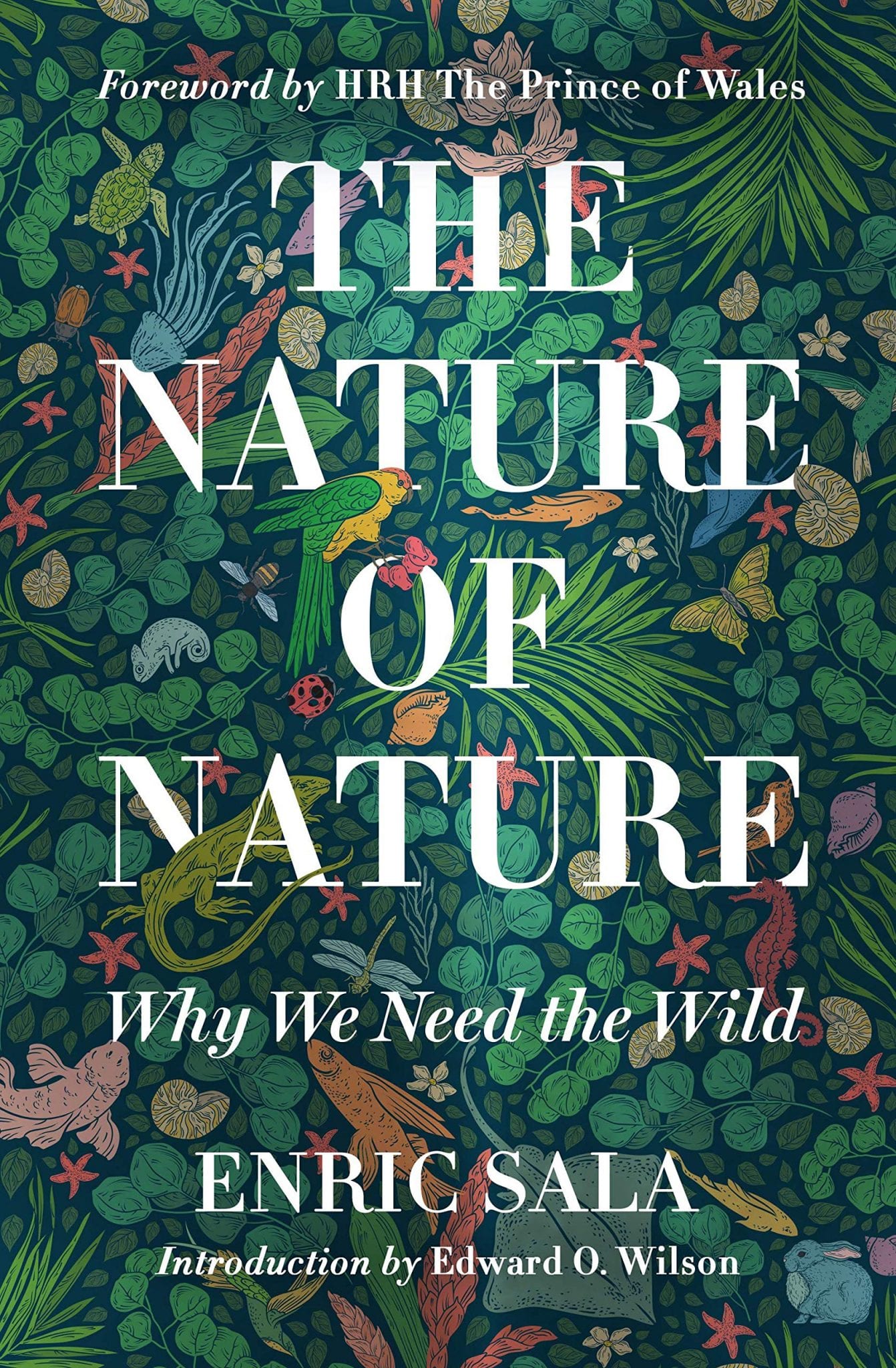 The Nature of Nature: Why We Need the Wild by Enric Sala
The Nature of Nature: Why We Need the Wild by Enric Sala
Enric Sala wants to change the world, and in this compelling book, he shows us how. Once we appreciate how nature works, he asserts, we will understand why conservation is economically wise and essential to our survival. His revelations are surprising, and sometimes counterintuitive: More sharks signal a healthier ocean; crop diversity, not intensive monoculture farming, is the key to feeding the planet. Using fascinating examples from his expeditions and those of other scientists, Sala shows the economic wisdom of making room for nature, even as the population becomes more urbanized.
Health Disparities in the United States: Social Class, Race, Ethnicity, and the Social Determinants of Health by Donald A. Barr, M.D. Ph.D.
While the U.S. is the wealthiest nation in the world, widespread disparities and access to healthcare plague the country. Dr. Donald Barr gives readers a comprehensive overview of what fuels these inequalities, from geographical location, to racial discrimination and social class. As a physician, he offers insight and solutions for addressing this problem. This is a timely book that looks at this issue from many angles.
Books on Re-Imagining Industrial Systems
*The Story of Stuff by Annie Leonard
From the cobalt mines in the Democratic Republic of the Congo to factories where our “stuff” is produced, human rights abuse and environmental issues plague many parts of the global supply chain. With compelling visuals, data, and anecdotes, this straightforward and action-oriented book not only shows the systemic nature of overconsumption, but rallies readers towards concrete plans for individual and collective action.
*Jessie de La Cruz: A Profile of a United Farm Worker by Gary Soto
In the U.S., agriculture is listed as one of the most hazardous occupation fields. Heat and wildfires, fueled by climate change, are only expected to only expand threats to farm workers. Farm workers were deemed essential workers during the COVID pandemic and yet they lack many protections. In this compelling and critical biography, Gary Soto, a former farmworker himself, chronicles the life of Chicana activist and former farm worker Jessie de La Cruz, the first female recruiter for the United Farm Worker organization (originally the NFWA). This important book tells an important part of U.S. history, the La Causa movement, and how one young person can make a difference in advancing labor rights and social justice.
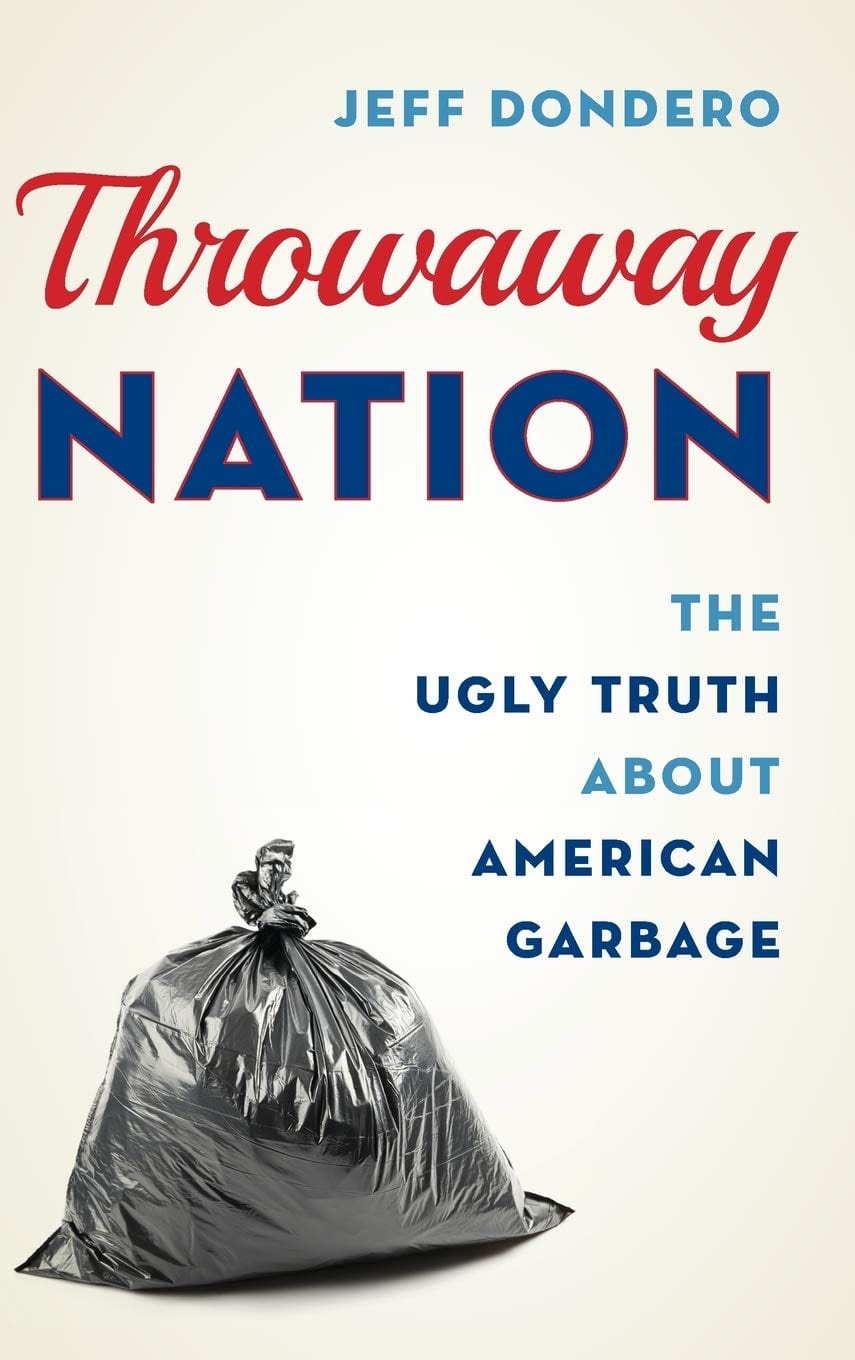 Throwaway Nation: The Ugly Truth about American Garbage by Jeff Dondaro
Throwaway Nation: The Ugly Truth about American Garbage by Jeff Dondaro
Jeff Dondaro shows us the environmental impacts of all kinds of Americans’ trash: from plastic packaging, to fast fashion, to e-waste. The U.S. produces the most waste per capita of any nation, and while learning how it got to be this way, readers also learn actionable steps they can take to shift away from this cycle of consumption and discarding.
Thinking in Systems: A Primer by Donna Meadows
How can we solve the world’s complex problems? How do environmental, socio-cultural, economic, and political factors overlap in causes and solutions to problems? In this book, the late scientist Donna Meadows helps readers understand how structural processes and cause and effect systems create inequalities, and how systems thinking can help yield solutions to many socio-ecological problems.



